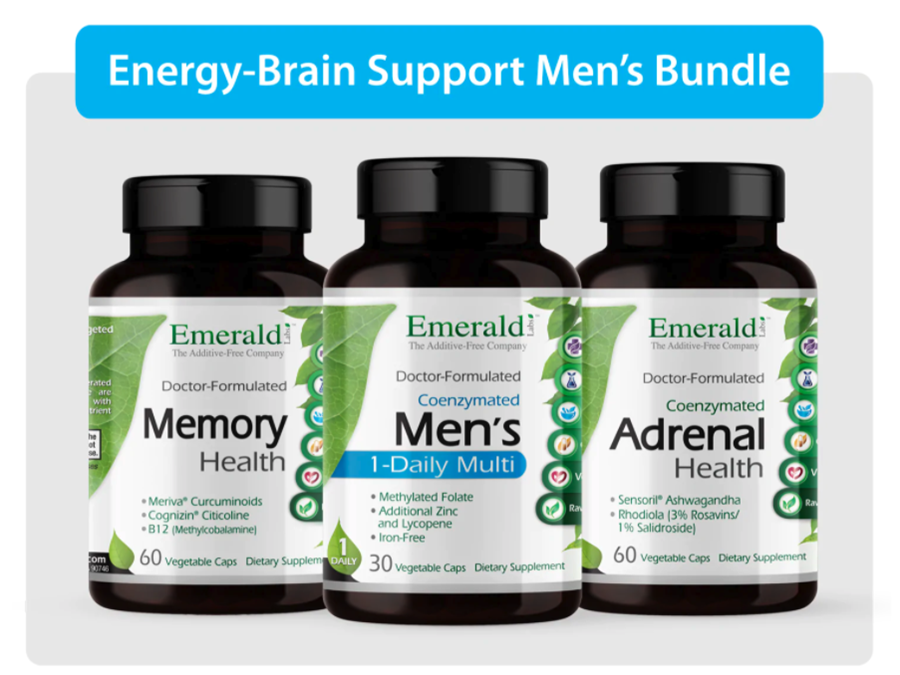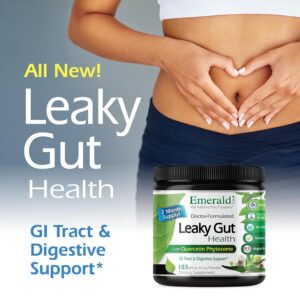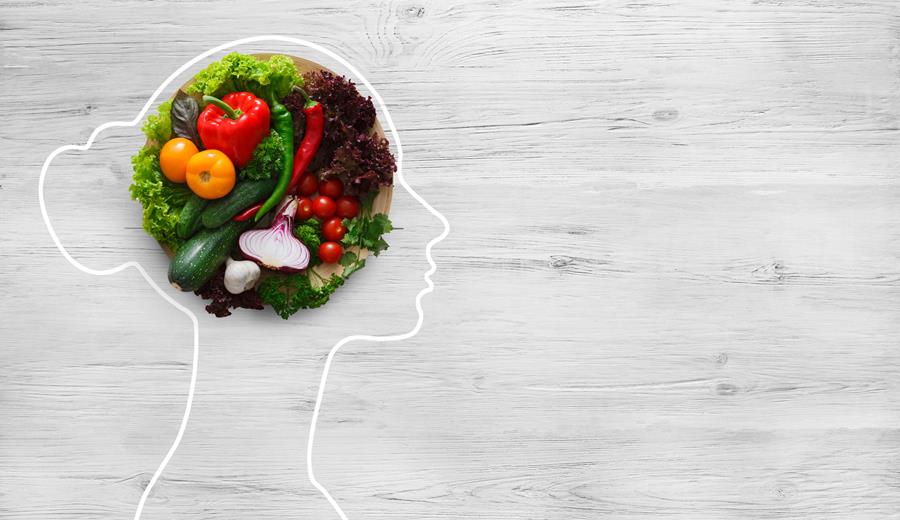
Forgetting simple words in the middle of a sentence might be a little embarrassing, and is probably something you (or someone you know) have experienced at some point or another.
For some of you, difficulty focusing might be one of your biggest challenges. Trouble recalling memories or slower than usual thinking are also symptoms of something bigger that’s impacting your ability to think. We commonly refer to this as “brain fog”.
Our day-to-day thoughts are commonly overwhelmed with chores, errands, or seemingly shrinking work deadlines… these compounding tasks can make it challenging for one to find the “off-switch” when it wants to operate 24/7.
Brain health is so important and at the same time is very misunderstood, especially in the fast-paced, fast-thinking, and fast-food society we live in today.
So for now, let’s sit back and take a breath. Take a few moments now to relax as we show you how to develop better cognitive health habits shown to benefit the brain over the long term.
Support the brain.
Brain fog, “mommy brain”, and age-related decline … are all terms we have used to describe our moments of forgetfulness or when we have trouble thinking clearly.*
The reality is these are all symptoms of issues that, if identified, can be balanced using the natural healing properties of what we like to call “brain foods”.*
The brain makes up only 2% of your body weight, yet it consumes roughly 20% of your body’s energy when at rest. That means the human brain needs a whole lot of nutrition to stay alert and focused throughout the day.*†
Did you know the brain is made up of approximately 70% fat? This makes nutrients like omega 3’s very appetizing to brains as they are the essential building blocks for learning and memory retention.*†
Common causes of "brain fog"
People experience various symptoms of brain fog for a variety of reasons. Things like diet, sleep habits, and medications can all play a role. However, there are a few main causes to watch out for in your own experiences to try and reduce them if possible. They are:
Stress
Stress is a big problem and one that shouldn’t go overlooked. The hormones released during stress are similar to those of the body’s “fight or flight” response which means quicker heart rates, muscle contractions, and faster breathing. But when we trigger these stress hormones frequently it can put your health at risk.*†
Lack of Sleep
In a study published in Nature Medicine, researchers found that sleep deprivation disrupts our brain cells’ ability to communicate with each other, leading to temporary mental lapses that affect memory and visual perception.*†
Their study produced results that revealed lack of sleep interfered with the neurons’ ability to encode information and translate visual input into conscious thought. This means that reaction time would be delayed for someone who is sleep-deprived, making things like driving or riding a bike very dangerous in this state.*†
Lack of Nutrients
The list of nutrients that could be labeled as “brain foods” is quite long, but one nutrient that consistently tops many of our lists is Vitamin C. Known mostly as an immune booster, vitamin C has been shown to improve cognitive function.*†
A study involved 214 healthy young adults who had inadequate vitamin C blood levels. Participants were then given vitamin C at a dose of 500 mg twice daily for 4 weeks or a placebo. Compared to the placebo, the vitamin C group had significantly improved work attention and work motivation, which improved performance on cognitive tasks that required sustained attention.*†
Other important brain foods include:
Turmeric: Linked to many benefits and widely known as an anti-inflammatory, turmeric also offers cognitive benefits. A study revealed that the subjects who took curcumin (a compound found in turmeric) twice daily demonstrated a 28 percent improvement in memory tests over the course of the study, while those who took the placebo showed no significant memory improvements.*†
Walnuts: With omega 3 fatty acids, fiber, and vitamin E, walnuts are delicious and healthy. For the most flavor and aroma, toast lightly (set the timer, as nuts can burn quickly). Try sprinkling atop oatmeal, fresh fruit, and salads. For alternatives, go with flaxseeds and chia seeds.*†
Blueberries: Want to delay the aging of your brain by two-and-a-half years? According to Dr. Mark Stengler, NMD MS, eating blueberries might do the trick. Plus, fiber- and vitamin C-rich blueberries have among the highest antioxidant concentrations of any fruit. Try them in oatmeal, smoothies, or whole-grain pancakes.*†
Salmon: Research indicates that fish consumption might lower the risk of dementia. High in omega-3 fatty acids and lower in mercury than other oily fish, salmon is an intelligent choice. If you’re not a salmon fan, try trout, sardines, or herring instead. Bake in a parchment paper or foil packet or poach in fish or chicken stock.*†
Avocados: These social media stars boast (health-promoting) monounsaturated fat, along with vitamin E and fiber. In addition to avocado toast and guacamole, use in place of mayonnaise in dips and tuna salad.*†
So, there you have it. The incredible health benefits of mushrooms and turmeric. If you’re looking for a way to support your immune system and nourish your overall health, consider adding these two amazing plants to your diet.
Our Deep Immune Health is packed full of both superfoods making this a great option to give you a burst of antioxidants and immune support.
The formula contains clinically researched forms of Coriolus Versicolor, Maitake Gold® MG 404 Mushroom Extracts plus Astragalus Extract & Meriva® Turmeric Root Extract, which is 29 times more bioavailable than standard turmeric, which may help to support the Immune Response*
If you’re searching for a potent turmeric kick look no further than our Meriva® Turmeric Plus. We’ve added 500mg of Meriva Turmeric which is 29 times more bioavailable than standard turmeric which allows it to absorb in the body more efficiently. Diane W. has some wonderful things to say about her experience with our turmeric formula, take a look below…
The Gut-Brain Connection
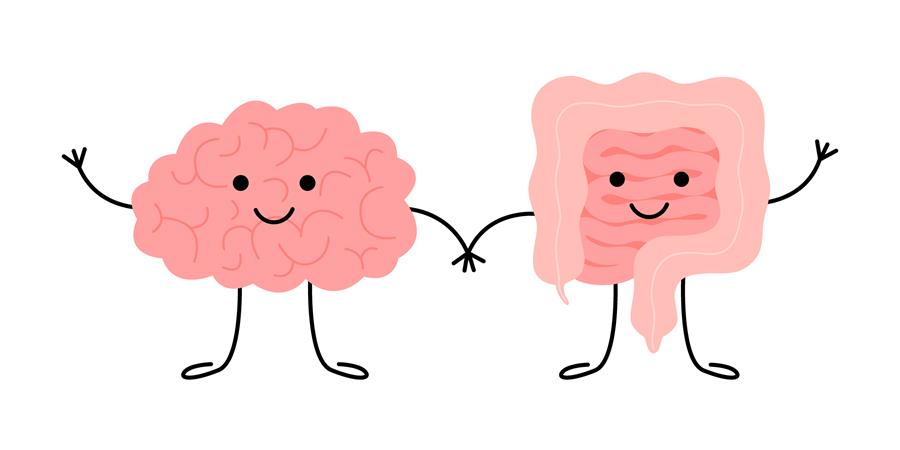
Your stomach problems, like heartburn, intestinal cramps, or diarrhea might all stem from elevated levels of stress. Harvard Health gives us a great explanation of how the gut and the brain are connected:
“The brain has a direct effect on the stomach and intestines. For example, the very thought of eating can release the stomach’s juices before food gets there. This connection goes both ways. A troubled intestine can send signals to the brain, just as a troubled brain can send signals to the gut. Therefore, a person’s stomach or intestinal distress can be the cause or the product of anxiety, stress, or depression. That’s because the brain and the gastrointestinal (GI) system are intimately connected.”*†
Here at Emerald Labs we have a variety of products containing many of these brain foods and use clinically proven ingredients that are Dr. Formulated to help support attention, memory, and focus.
If you’d like to learn more about them, click on the links below to review their benefits and ingredients. Don’t forget to use the coupon code “BRAINFOOD” during checkout to save an extra 15% off!
Use the code below to SAVE 15% on our Superfood formulas.
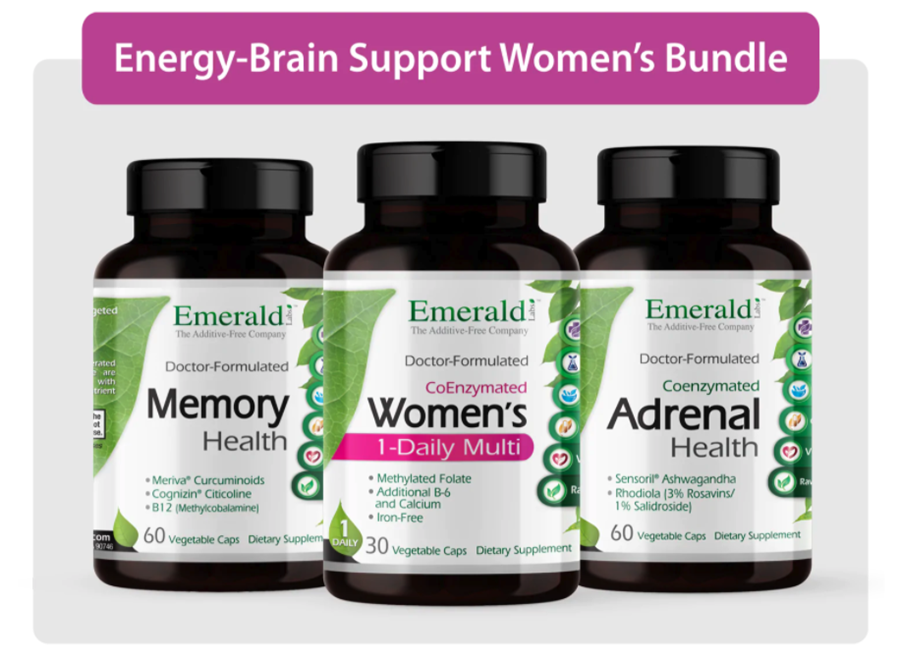
Enter Code "BRAINFOOD" in the order summary section at checkout to SAVE 15% on Brain Health formulas.
Formulated by Dr. Mark Stengler NMD.
Known as America’s Natural Doctor to his patients, readers and audiences across North America, Mark Stengler is a licensed naturopathic medical doctor. His passion is to combine the best of conventional and natural medicine to achieve optimized health for his patients. Dr. Stengler has personally formulated each of the Emerald Labs Additive-Free products according to the high standards of his health practice. Read more about Dr. Stengler…
*These statements have not been evaluated by the Food and Drug Administration. This product is not intended to diagnose, treat, cure or prevent disease. CONSULT YOUR PHYSICIAN OR OTHER QUALIFIED HEALTH CARE PROVIDER FOR ADVICE REGARDING ANY MEDICAL CONDITION. DO NOT ATTEMPT TO SELF-DIAGNOSE OR TREAT ANY MEDICAL CONDITION.
†Selected References



